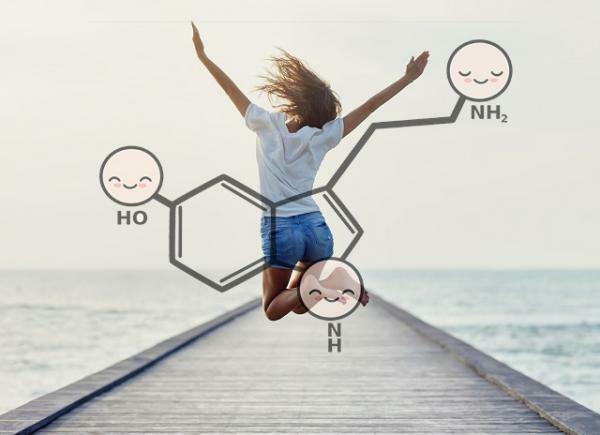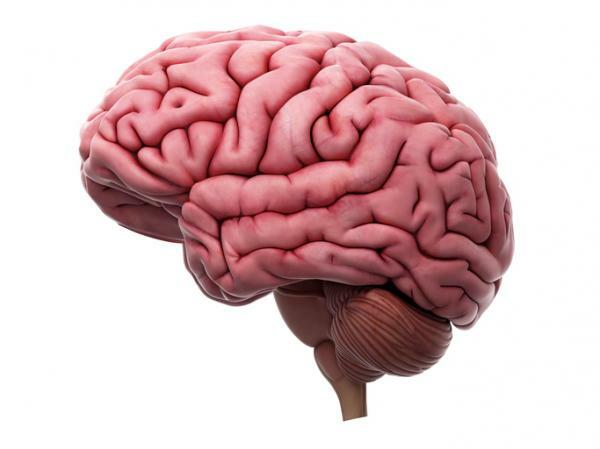
Parkinson's is a degenerative disease of the nervous system. Its symptoms appear gradually, being at first quite common to have a slight tremor in one of the hands or that the arms do not swing when they walk. The symptoms become more severe as the disease progresses. It is stipulated that the person has a good quality life expectancy of between 15 and 20 years.
Because life expectancy is increasing, the cases of Parkinson's increase, since the disease is more common in advanced ages. This makes many want to know if the disease has a cure.
In this Psychology-Online article, we tell you if Parkinson's has a cure, the different symptoms and causes of the disease and the life expectancy and mortality of a person with Parkinson's. You will also see the current treatments and the latest medications that exist to treat the disease.
Index
- Parkinson's symptoms
- Causes of Parkinson's
- Life expectancy and mortality in Parkinson's
- Parkinson's treatment
Parkinson's symptoms.
There are several fairly common signs in people with this disease. So how do you detect Parkinson's? Let's see what the symptoms of Parkinson's are:
- Tremors: This is the most characteristic symptom of Parkinson's and the one that everyone remembers, although not everyone who suffers from Parkinson's necessarily has tremors. Tremors generally begin in one limb. The so-called "pill tremor" is quite common and involves involuntarily rubbing the index and thumb. Tremors occur even with the hand at rest.
- Slowness of movement (bradykinesia): movements can become slower and more expensive. It is quite common to drag your feet when walking, for the steps to be shorter and for any movement to be complex to perform.
- Muscular stiffness- Muscle tightness or stiffness is quite common. On many occasions this stiffness can even be painful.
- Position hunched over and balance: another of the typical symptoms in Parkinson's disease It is having problems with balance and a stooped posture when walking. In addition, Parkinson's causes fatigue.
- Loss of automatic movements: automatic movements are those that we do without planning or thinking. Some of them that can be affected are blinking or movement of the arms when walking, among others. Thus, the person has to spend some time thinking about what movement he wants to do because he no longer does it automatically.
- Changes in speech: depending on the person, speech may be affected in one way or another. It can become very monotonous or speak very fast. Insults or doubting before speaking is also common.
- Writing problems: writing can be more and more expensive and can become a smaller print.
All of these symptoms produce parkinsonism. Find out more about what Parkinson's is and why it occurs in the following article: Neuropsychology of Parkinson's disease.
Causes of Parkinson's.
Parkinson's is due to a failure in the production of dopamine in the brain. That is, there is less than it should. Dopamine It is a hormone that is responsible for producing the sensation of reward, participates in body movements, in sleep, etc. But why does this failure of dopamine production?
The causes of Parkinson's have not been found, but several factors that increase the probability of suffering from Parkinson's have been found. One of these factors is that Parkinson's is genetic. On the other hand, certain environmental factors such as exposure to toxins such as insecticides and herbicides can increase the likelihood of having Parkinson's.
Current research is focusing on the presence of Lewy bodies, which are masses found inside neurons. The likelihood of Parkinson's is increased in older men.
Life expectancy and mortality in Parkinson's.
As we said at the beginning, it is stipulated that the good quality life expectancy is between 15 and 20 years. Various studies have shown that the life expectancy of Parkinson's is shorter and there is a increased risk of mortality. However, there are no major differences between the total life expectancy of a person with treated Parkinson's than that of a person without Parkinson's.
So is Parkinson's deadly? We can conclude that it is not a fatal disease in most of the people who suffer it. So, is there a cure for Parkinson's? Next, we will see if Parkinson's is curable and its treatment.
Parkinson's treatment.
Does Parkinson's have a cure? First of all, it should be mentioned that Parkinson's treatment serves to alleviate the symptoms but does not cure the disease. The help of physical therapists can help preserve movement and balance, and a speech therapist can facilitate water maintenance.
As for medication, dopamine cannot be directly provided to the patient as it cannot access the brain, so the medication usually consists of dopamine precursors. Some of the most current Parkinson's medications that significantly help alleviate symptoms are:
- Carbidopa-Levodopa: levodopa is the natural precursor of dopamine, making it the most effective and common treatment. However, over time, this drug loses its effectiveness.
- Inhaled carbidopa-levodopa- Used when oral medications are no longer as effective.
- Carbidopa-levodopa infusion- It is given through a feeding tube so that the medicine reaches the small intestine directly. It is commonly administered to patients with advanced disease.
- Dopamine agonists: it is about mimicking dopamine in the brain. They are not as effective but their effects are longer lasting.
- Monoamine oxidase type B inhibitors: prevent dopamine from being metabolized.
- Catechol-O-methyltransferase inhibitors: blocks an enzyme that dissolves dopamine.
- Anticholinergics: they are the most classic Parkinson's drugs when it comes to controlling tremors. However, they are not used as much anymore due to their myriad side effects.
- Amantadine: applied early in the disease to relieve symptoms when they are still mild. It is sometimes given together with carbidopa-levodopa to control the side effects of the latter.
- In the most extreme cases, a deep brain stimulation with electrodes.
- Training for Parkinson's and caffeine consumption or from Green Tea are associated with a lower risk of suffering from this disease.
- If you wonder how to prevent Parkinson's, exercise mental and physical they can help make Parkinson's symptoms milder.
This article is merely informative, in Psychology-Online we do not have the power to make a diagnosis or recommend a treatment. We invite you to go to a psychologist to treat your particular case.
If you want to read more articles similar to Does Parkinson's have a cure?, we recommend that you enter our category of Neuropsychology.
Bibliography
- Chou, KL (2017). Diagnosis and differential diagnosis of Parkinson's disease. Waltham (MA): UpToDate.
- Ferri, F. F. (2019). Ferri's Clinical Advisor 2020 E-Book: 5 Books in 1. Elsevier Health Sciences.
- Posada Rodríguez, I. J. (2010). Mortality of Parkinson's disease and other parkinsonisms. Data from the population study Nedices.


